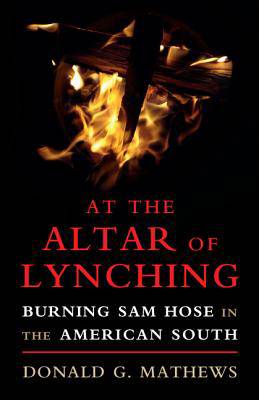
- Afhalen na 1 uur in een winkel met voorraad
- Gratis thuislevering in België vanaf € 30
- Ruim aanbod met 7 miljoen producten
- Afhalen na 1 uur in een winkel met voorraad
- Gratis thuislevering in België vanaf € 30
- Ruim aanbod met 7 miljoen producten
Zoeken
€ 50,45
+ 100 punten
Uitvoering
Omschrijving
The story of a black day-laborer called Sam Hose killing his white employer in a workplace dispute ended in a lynching of enormous religious significance. For many deeply-religious communities in the Jim Crow South, killing those like Sam Hose restored balance to a moral cosmos upended by a heinous crime. A religious intensity in the mood and morality of segregation surpassed law, and in times of social crisis could justify illegal white violence - even to the extreme act of lynching. In At the Altar of Lynching, distinguished historian Donald G. Mathews offers a new interpretation of the murder of Sam Hose, which places the religious culture of the evangelical South at its center. He carefully considers how mainline Protestants, including women, not only in many instances came to support or accept lynching, but gave the act religious meaning and justification.
Specificaties
Betrokkenen
- Auteur(s):
- Uitgeverij:
Inhoud
- Aantal bladzijden:
- 354
- Taal:
- Engels
- Reeks:
Eigenschappen
- Productcode (EAN):
- 9781316633984
- Verschijningsdatum:
- 11/09/2017
- Uitvoering:
- Paperback
- Formaat:
- Trade paperback (VS)
- Afmetingen:
- 166 mm x 233 mm
- Gewicht:
- 494 g

Alleen bij Standaard Boekhandel
+ 100 punten op je klantenkaart van Standaard Boekhandel
Beoordelingen
We publiceren alleen reviews die voldoen aan de voorwaarden voor reviews. Bekijk onze voorwaarden voor reviews.











